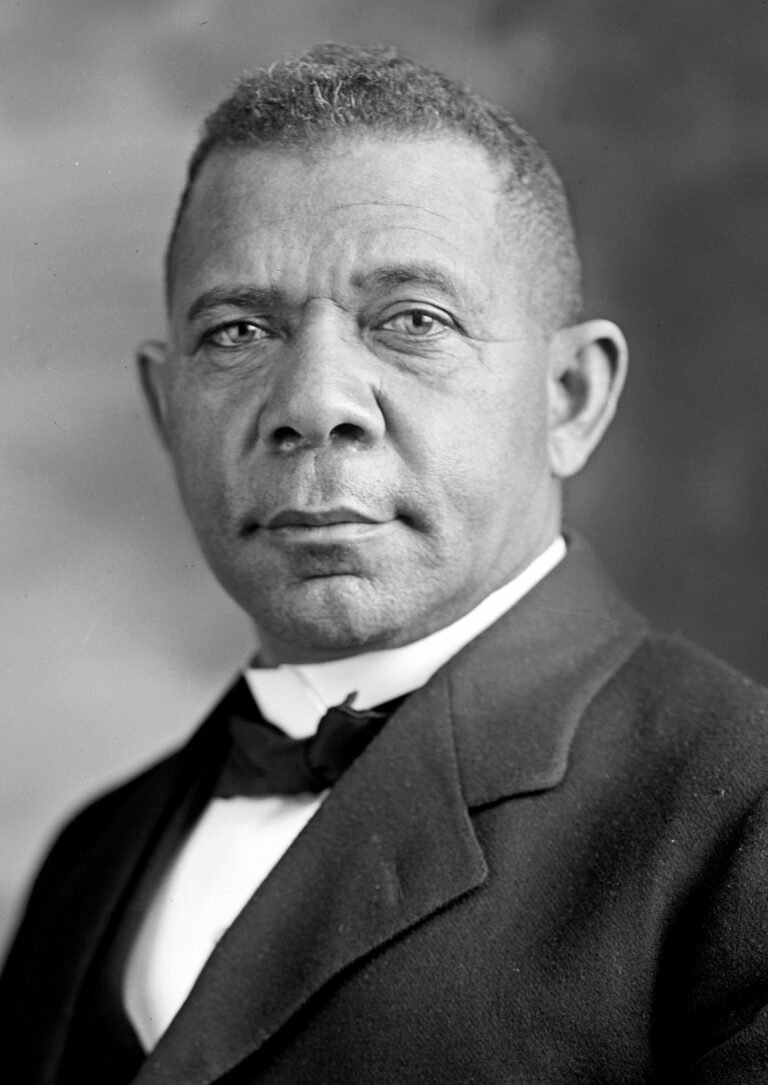Booker T. Washington: A Trailblazer in Education and African American Empowerment
From Enslavement to Education: The Formative Years of Booker T. Washington
Born into bondage in Virginia around 1856, Booker T. Washington’s early life was shaped by the harsh realities of slavery and the transformative period following emancipation. Despite the severe limitations imposed on African Americans in the Reconstruction-era South, Washington exhibited an extraordinary determination to pursue learning. His initial schooling was irregular and often interrupted by economic hardships, yet his passion for education never waned. Relocating to Malden, West Virginia, during his youth marked a pivotal step toward formal education and set the stage for his future as a prominent leader.
Washington’s academic development accelerated when he enrolled at the Hampton Normal and Agricultural Institute in Virginia. This institution, under the guidance of General Samuel Armstrong, emphasized vocational training and self-sufficiency, principles that deeply influenced Washington’s educational philosophy. Key elements of his schooling include:
- Hampton Institute Influence: Mentored by General Armstrong, Washington embraced the value of industrial education as a means to uplift African Americans.
- Balancing Labor and Study: He worked diligently on campus, integrating physical labor with academic pursuits, fostering discipline and humility.
- Focus on Practical Skills: Committed to a curriculum designed to equip Black Americans with tangible vocational abilities.
| Year | Significant Event |
|---|---|
| 1856 | Born into slavery in Virginia |
| 1867 | Commenced formal education after emancipation |
| 1872 | Admitted to Hampton Institute |
| 1875 | Graduated and began teaching career |
Literary Works That Shaped African American Thought and Education
Booker T. Washington’s written contributions stand as pillars of African American intellectual history, blending autobiography with social commentary and educational advocacy. His landmark book, Up from Slavery (1901), offers a candid narrative of his rise from enslavement to becoming a foremost educator and proponent of vocational training. This work, part memoir and part manifesto, inspired countless readers by emphasizing self-improvement and practical education as pathways to racial uplift.
In addition to his autobiography, Washington produced a wealth of essays, speeches, and articles that articulated his vision for African American progress. His writings can be broadly categorized into three thematic areas:
- Vocational and Industrial Education: Advocating for skill development in trades and agriculture as essential for economic empowerment.
- Self-Sufficiency and Character Building: Stressing the importance of personal responsibility and economic independence.
- Race Relations and Gradualism: Promoting a strategy of accommodation and patient progress within the segregated society of his time.
These works remain vital for understanding the strategies African American leaders employed to navigate and challenge systemic barriers in the early 1900s.
| Title | Publication Year | Main Focus |
|---|---|---|
| Up from Slavery | 1901 | Autobiographical account and educational philosophy |
| My Larger Education | 1911 | Reflections on societal advancement and leadership |
| Work and Culture | 1907 | Emphasis on vocational training and economic growth |
Transformative Achievements and Their Influence on American Society
Booker T. Washington’s enduring impact is most evident in his pioneering efforts to expand educational opportunities for African Americans during a period of intense racial discrimination. The founding of the Tuskegee Institute in 1881 was a landmark achievement, providing a model for combining academic instruction with practical skills training. This approach not only equipped students with employable talents but also fostered a sense of dignity and self-worth.
Washington’s influence extended into national politics and civil rights discourse through several key roles and initiatives:
- Championing Industrial Education: Advocated for curricula that integrated manual labor with intellectual development, elevating the status of skilled work.
- Presidential Advisor: Served as a trusted consultant to U.S. presidents, including William McKinley and Theodore Roosevelt, shaping policies related to African American education and welfare.
- Strategic Civil Rights Leadership: Promoted a philosophy of gradual progress and economic empowerment as a pragmatic response to segregation and disenfranchisement.
- Oratory and Written Advocacy: Delivered influential speeches and penned articles that inspired both Black and white audiences to support racial cooperation and uplift.
| Year | Milestone | Significance |
|---|---|---|
| 1881 | Established Tuskegee Institute | Provided vocational education for African Americans |
| 1895 | Delivered Atlanta Compromise Speech | Gained national attention advocating racial cooperation |
| 1900 | Advised President McKinley | Influenced federal policies on race and education |
| 1911 | Published My Larger Education | Outlined broader vision for social progress |
Enduring Legacy and Influence on the Civil Rights Movement
Booker T. Washington’s philosophy centered on self-help, education, and economic advancement laid a critical foundation for future civil rights activism. His emphasis on vocational training and gradual social change inspired subsequent leaders who recognized the importance of building a strong economic base before pursuing political equality. The Tuskegee Institute became a symbol of empowerment, demonstrating how education could be a catalyst for community uplift.
While some contemporaries, such as W.E.B. Du Bois, criticized Washington’s accommodationist stance, his approach contributed to a multifaceted civil rights strategy that combined grassroots activism with institutional reform. His focus on:
- Educational empowerment
- Economic independence
- Leadership cultivation within Black communities
continues to influence efforts toward racial equality today. The dialogue between Washington’s methods and later civil rights tactics underscores the complexity and diversity of strategies that have propelled African American progress over the past century.
Summary: The Lasting Impact of Booker T. Washington
Reflecting on Booker T. Washington’s journey from slavery to national prominence reveals a story of perseverance, vision, and transformative leadership. His contributions as an educator, author, and advisor not only reshaped the educational landscape for African Americans but also laid groundwork for ongoing civil rights advancements. By championing practical education and economic self-reliance, Washington forged a path that continues to resonate in contemporary discussions about race, equality, and empowerment in the United States.







